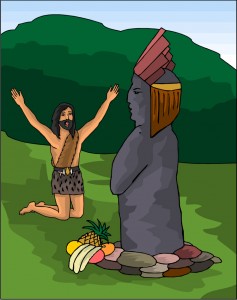How can a man have his past sins absovled, atoned for or washed away? There is only one way. The Bible reveals what that way is. Watch this video to find the answer.
Category Archives: Scripture
Blog Scripture Readings for 7-26 Through 8-1-15
Aside
THIS WEEK’S SCRIPTURE READINGS FOR STUDY AND DISCUSSION:
Parashat Va’etchanan — Deuteronomy 3:23 – 7:11
Haftarah — Isaiah 40:1-26
Prophets — Ezekiel 35:1 – 41:26
Writings — Nehemiah 11:1 – 13:31; 1 Chronicles 1:1 – 3:24
Testimony — Ephesians 4:1 – 6:24; Philippians 1:1 – 4:23
Most of this week’s blog discussion points will be on these passages. If you have general comments or questions on the weekly Scripture readings not addressed in a blog post, here’s a place for you to post those. Just use the “leave a reply” link below.
The full “Read Through The Scriptures In A Year” schedule, broken down by each day, can be found on the right sidebar under “Helpful Links.” There are 4 sections of scripture to read each day. One each from the Torah, the Prophets, the Writings, and from the Testimony of Yeshua. Each week, the Torah and haftarah readings will follow the traditional one-year reading cycle.
Weekly Blog Scripture Readings for 7/26 through 8/1/15.
Pithy and Life-Changing Lessons from Deuteronomy Chapters One to Three
Deuteronomy 1:29, He will fight for you. How does Elohim fight for us? Let’s look at the example of the children of Israel. We can learn a lot from them (1 Cor 10:11). How many examples are there of the Israelites sitting down and doing nothing while YHVH fought for them? Few if any. What then does YHVH require? We must do our part, and he will do the rest. What is the part we are to do? That depends. Sometimes it depends on what we we’re capable of doing. Often he requires us to come to the end of our resources and abilities, and then he will step in and finish off fight on our behalf to the victorious end. We also have to fight only the battles he has told us to fight. Sometimes we choose to fight battles he has not instructed us to fight. This was the case with the Israelites who chose to go up and take the Promised Land when YHVH told them not to do so. They were defeated (Deut 1:42–45). YHVH will not support his people in a battle he has not sanctioned. When YHVH tells us to go to battle we have to fight how he tells us to fight, who he tells us to fight, and when he tells us to fight. If the Israelites had gone up against Jericho using conventional warfare tactics, they would have been defeated because that’s not how YHVH instructed them to defeat that city. The same is true of Gideon’s unconventional method of defeating the Midianites. Often YHVH will fight for us when we submit to his battle plans and fight the enemy his way. The Israelites defeated the Amalakites when Moses stood on a hill with his arms outstretched in a cross-like formation. Likewise, they overcame Jericho by marching around it blowing shofars. Gideon used lamps and shofars to defeat the enemy. David used a slingshot. Sometimes the Israel defeated their enemy with the help of the ark of covenant, through prayer and praise and so on. The biblical list of unconventional methods of YHVH’s people defeating their enemies is a long and inspiring one! What can we learn from all of this? For YHVH to fight for us, we must first do things his way so that he’ll fight for us. This means knowing when and who to fight and how to fight. Often we have to wait on YHVH for the answers to these questions even as a military officer has to wait for headquarters to give him his marching orders. Headquarters won’t back or support the soldier who takes matters into his own hands. Conversely, headquarters won’t tolerate a solider who refuses to obey orders. The same is true of YHVH.
Deuteronomy 1:39, Little ones…knowledge of good and evil. “Little ones” were those under the age of 20 (see Num 14:29; 32:11). Certainly, children under the age of 20 Continue reading
Are you and Gentile?
Ephesians 2:11, Gentiles. Paul says in a number of places that those who come to Yeshua are no longer Gentiles but are the children or seed (literally “sperm,” which is the meaning of the Greek word) of Abraham (Eph 2:11–19; Rom 4:16; 9:8–11; Gal 3:7,9,14,28–29). The word Gentiles as used in the Scriptures (both in the Hebrew and the Greek languages) simply means “ethnic groups or nations.” There are many places in the Scriptures where Jews and Israelites are referred to as “Gentiles.” However, there is no class of people called Gentiles in the spiritual body of Yeshua. Scripture uses the following terms for the redeemed of YHVH: the saints, the called out ones (or church), the body of Yeshua (1 Cor 10:16; 12:27; Eph 4:12) the one new man (Eph 2:15), sons of Elohim (Rom 8:14, 19; Phil 2:15; 1 John 3:1, 2), children of Elohim (Rom 8:16, 21; Gal 3:26; 1 John 3:10), or Abraham’s offspring (Gal 3:29), the bride (Rev 18:23; 21:2, 9; 22:17) for example.
Any attempt by anyone to keep the Jew—Gentile division alive within the body of Yeshua is in effect keeping up the middle wall of partition that the Apostle Paul gave his ministry life and eventually his physical life to tearing down (see Eph 2:11–19). It is also going against the clear teaching of the Scriptures, which say that within the spiritual body of Yeshua, there is no longer Jew or Gentile/Greek (Rom 10:12; Gal 3:28; Col 3:11).
The Scriptures reveal that there are only two classifications of people: Israelites and non-Israelites or Gentiles. The former has eternal life because of their relationship with the Continue reading
Are you possessing the land or just warming a pew with your blessed ASSurance waiting the second coming?
Deuteronomy 2:31, Begin to possess [the Promised Land]. Possession of the Promised Land was a process. This concept is as true for us as much as it was for the children of Israel. The idea in mainstream Christianity that when you receive salvation at the beginning of your spiritual walk and that’s all there is to possessing or entering the kingdom of Elohim is a seriously incomplete one. It doesn’t fit the biblical models or the teachings of the apostolic writers about the need for the believer to persevere and overcome to the end to receive his ultimate eternal inheritance.
When this verse states that Israel “began to possess [the Promised Land],” what does this mean? Why didn’t YHVH give it to Israel all at once? What did Israel have to do to “possess” the land? What do we have to do to possess our spiritual inheritance? Does YHVH just hand it to us, or do we have to persevere, overcome and fight for it?
Leaving Egypt is a picture of a believer’s initial salvation, while entering the Promised Land is a picture of a believer’s ultimate salvation involving his glorification or the redemption of his physical body and being granted eternal inheritance at the resurrection. It’s also a picture of rewards for obedience.
Sukkot NW 2015 Registration is now open. Plan to attend today!
You are cordially invited to join the Sukkot NW planning team, Congregation Elim of Tigard, Oregon and Hoshana Rabbah Biblical Discipleship Resources for our fourteenth annual Sukkot Northwest regional gathering this fall in southern Oregon on the wild and scenic Rogue River.
This year, we will be celebrating the Feast of Tabernacles (or Chag Sukkot) on the banks of the Rogue River — where bald eagles will be flying overhead and sea-run salmon will be spawning in the river waters below against a backdrop of steep canyon cliffs and tree-covered mountains. For your comfort and pleasure, the campground has all the amenities necessary for tent campers and RVers, including full hookups, hot showers, a playground, various sports facilities, and wood. Ice and propane can be purchased less than 1 mile up the road at a small market and a full service grocery store is available 8 miles away in the town of Merlin. Don’t camp? You can rent a travel trailer and have it dropped off at the campground, or you can stay in a nearby cabin or lodge or a hotel in Grants Pass just 20 minutes from the campground. (To continue reading, go to http://sukkotnw.org).
Check out this video of highlights from Sukkoth NW 2015:
Dealing With Difficult Family Members
Deuteronomy 2:2–9, Edom. Edom (another name for Esau, brother of Jacob) and Moab and Ammon (sons of Lot) were blood relatives of the Israelites. Often those of our own family will stand in our way as we go in to possess our spiritual, Elohim-given inheritance and destiny.
What is the lesson from this passage of scripture on how to deal with less-than-cooperative family members who fail to recognize the calling on your life? Are we to make war with them? Are we in any way to be beholden to or dependent on them for our physical needs? If we became dependent upon them could this help or hinder our chances of entering our own spiritual destiny or “Promised Land”? Does YHVH desire our families to be saved? (See Acts 16:31; 2 Pet 3:9.) How can we be a light to our families if we are fighting and attempting to destroy those who would spiritually stand in our way?
This passage also teaches us to avoid conflicts with family members at all costs. No good can come from such confrontations. How does verse 5 start out? Now go on to read verse 6. YHVH instructed the Israelites to treat their cousins with respect and civility—almost in a business-like manner.
Nowhere does Scripture tell us that we have to like our heathen family members. But neither are we to act offensively toward them. Like the Israelites when forced to encounter long lost relatives, sometimes it is best to smile, be nice, but keep moving on!





